-
Posts
10,758 -
Joined
-
Last visited
Content Type
Events
Forums
Downloads
Quizzes
Gallery
Blogs
Posts posted by Social Media
-
-
@NanLaew a number of posts across a couple of topics removed. Please abide by the community standards and enough of the troll baiting
-
 1
1
-
 1
1
-
-
UPDATE:
Gaza's Power Vacuum: Hamas Official Admits Group Has Lost Control Amid Rise of Armed Clans

Gaza's Power Vacuum: Hamas Official Admits Group Has Lost Control Amid Rise of Armed Clans
A senior Hamas security officer has made a stark admission that the militant group has lost nearly all control over the Gaza Strip, with chaos and lawlessness spreading across the territory. Speaking to the BBC, the lieutenant colonel said that Hamas’s command structure has disintegrated under relentless Israeli military pressure, leaving armed clans to fill the void in a region descending into violence and disorder.
“Let’s be realistic here – there’s barely anything left of the security structure. Most of the leadership, about 95%, are now dead... The active figures have all been killed,” the officer said, painting a grim picture of internal collapse. According to him, even a 57-day ceasefire earlier this year failed to restore the group’s footing, despite efforts to reorganize its political, military, and security arms.
“About the security situation, let me be clear: it has completely collapsed. Totally gone. There’s no control anywhere,” he said. One of the most symbolic signs of Hamas’s collapse, he added, was the looting of Ansar, its main security complex that once acted as the nerve center of governance in Gaza. “People looted the most powerful Hamas security apparatus,” he stated.
The officer described a lawless Gaza where “gangs or armed clans are everywhere.” In his words, “They could stop you, kill you. No one would intervene. Anyone who tried to act on their own, like organising resistance against thieves, was bombed by Israel within half an hour.”
He described the current state of the group as one of total dysfunction. “So, the security situation is zero. Hamas’s control is zero. There’s no leadership, no command, no communication. Salaries are delayed, and when they do arrive, they’re barely usable. Some die just trying to collect them. It’s total collapse.”
With Hamas faltering, six armed groups tied to local clans have risen to prominence, the officer said, with most of their activity focused in southern Gaza. These groups now possess the cash, weapons, and manpower to challenge the once-dominant group.
One of the most notable figures to emerge is Yasser Abu Shabab, whose rise has drawn attention from multiple regional actors, including the Palestinian Authority and Israel. Last month, Israel confirmed it was supplying weapons to Abu Shabab’s group, a revelation that has intensified speculation about broader geopolitical maneuvering.
The officer said Hamas had put a large bounty on Abu Shabab’s head. “Hamas would ignore ordinary thieves. People are hungry and [the fighters] don’t want to provoke more chaos. But this guy? If the Hamas fighters find him, they might go after him instead of Israeli tanks,” he said.
Sources in Gaza confirmed to the BBC that Abu Shabab is attempting to form a joint council of armed factions with the goal of toppling what remains of Hamas’s rule. A retired Palestinian security official who once helped crush Hamas’s military arm in the 1990s said Abu Shabab’s network was gaining traction. “Abu Shabab’s group is like an orphaned child who everyone will want to adopt if he succeeds in undermining Hamas rule,” the former official, now living in Cairo, said.
The official added that Abu Shabab has held multiple meetings with a senior Palestinian intelligence officer and used relatives in Sinai to send assurances to Egypt. He also maintains “good ties with Mohammad Dahlan’s camp,” he said, referring to the exiled former Gaza security chief and longtime rival of the Palestinian Authority's President Mahmoud Abbas.
According to the Hamas officer, the group sees Abu Shabab not merely as a military threat but as a potential symbol around whom years of opposition to Hamas rule could coalesce. “For 17 years, Hamas made enemies everywhere. If someone like Abu Shabab can rally those forces, that could be the beginning of the end for us.”
 Adapted by ASEAN Now from BBC 2025-07-07
Adapted by ASEAN Now from BBC 2025-07-07
-
 1
1
-
-
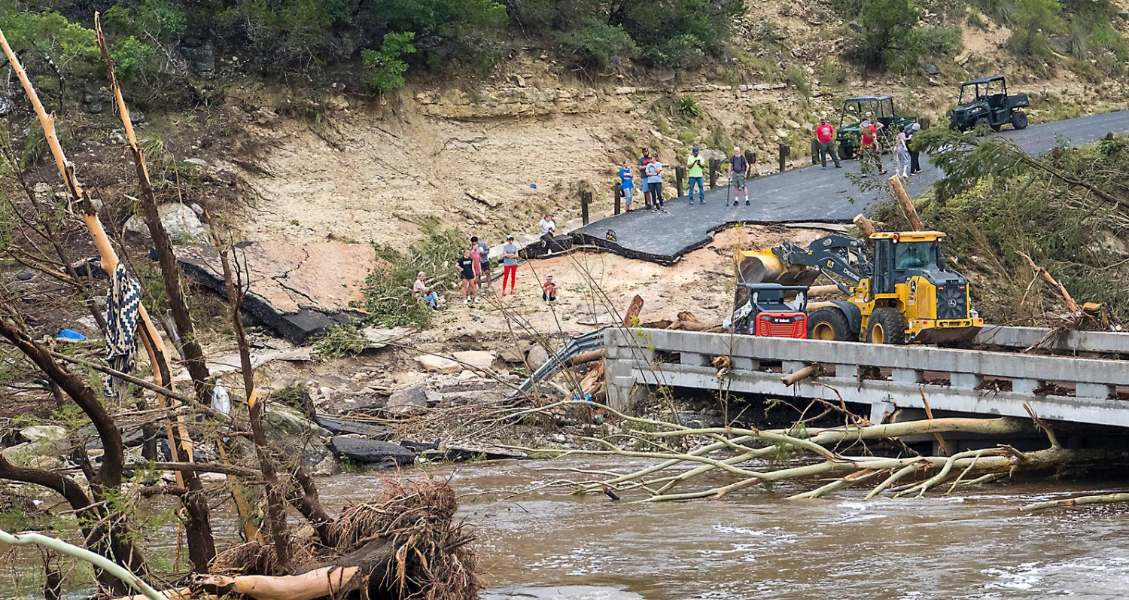
Texas Floods Leave Trail of Devastation as Death Toll Climbs and Children Remain Missing
The devastating floods that swept through central Texas have now claimed the lives of at least 80 people, including 21 children, in one of the deadliest natural disasters to strike the region in decades. Officials are bracing for the toll to rise further as rescue teams continue to search for those missing, including 11 young girls and a counselor who vanished during the chaos at a historic summer camp.
The flooding, which began Friday, was triggered by a powerful storm system that dumped nearly 38 centimeters of rain on the region. The Guadalupe River near Kerrville surged to between six and eight meters, obliterating roads, homes, and campgrounds in its path. Entire communities were left submerged, and the extent of the destruction is still being uncovered.
Kerr County has borne the brunt of the disaster, reporting 68 deaths, including 40 adults and 28 children. Other casualties were confirmed in Travis, Burnet, Kendall, Tom Green, and Williamson counties. Among the hardest hit was Camp Mystic, a nearly 100-year-old Christian camp where families are still waiting in agony for news about their missing daughters.
In a heartbreaking revelation, the grandson of Camp Mystic’s director, Dick Eastland, confirmed that his grandfather had died attempting to rescue campers from the deadly waters.
Questions are already mounting over why local authorities did not initiate evacuations sooner. When pressed on Friday about the failure to clear summer camps ahead of the storm, Kerr County Judge Rob Kelly said, “I can’t answer that. I don’t know.”
Governor Greg Abbott, who visited the devastated areas on Saturday, said the scenes were deeply disturbing. “It was nothing short of horrific to see what those young children went through,” he said, promising continued efforts to locate the missing.
President Donald Trump responded by signing a Major Disaster Declaration for Kerr County on Sunday, unlocking federal resources to support the search, rescue, and recovery operations. “These families are enduring an unimaginable tragedy, with many lives lost, and many still missing,” Trump wrote on Truth Social.
He later addressed reporters before departing New Jersey, where he spent the weekend. “We’ll continue to be there. And we’re working very closely with representatives from Texas, and it’s a horrible thing that took place, absolutely horrible,” Trump said. “So, we say, God bless all of the people that have gone through so much, and God bless, God bless the state of Texas.”
Asked about his previously announced plans to reduce the scope of FEMA’s responsibilities, Trump deflected. “FEMA is something we can talk about later, but right now, they’re busy working, so we’ll leave it at that,” he said. He also stated he would “probably” visit Texas on Friday.
Search and rescue teams have already saved more than 850 people, some of whom were found clinging to trees. U.S. Coast Guard helicopters and FEMA teams continue to scour the area. The National Weather Service has kept much of south-central Texas under a flood watch, with more rain expected.
Survivors have begun to share terrifying stories. Brothers Brock and Braeden Davis, who were attending Camp La Junta, described being awakened around 4 a.m. Friday by screams and surging water. “I hear screaming from outside. Later on, I find out someone’s cabin flooded, and they were outside in the middle of the rain,” said Braeden.
“We jumped up to another bed, a top bunk and like our beds started tipping over, and we got to the top really quick and then, one of the walls fell down,” Brock recalled. The boys waited 13 harrowing hours on the top bunk before they were rescued.
Amid the grief and chaos, some critics have raised concerns that federal staffing cuts, including at the National Weather Service, may have hindered the ability to predict the storm’s ferocity and issue timely warnings.
As rescue efforts enter another critical day, Texas remains on high alert, and the full scope of this disaster is yet to be revealed.
 Adapted by ASEAN Now from Sky News 2025-07-07
Adapted by ASEAN Now from Sky News 2025-07-07
-
 1
1
-
-

York Council Sparks Controversy with Military Equipment Ban at Armed Forces Day
A decision by York’s Labour-led city council to exclude military equipment from its Armed Forces Day event has triggered a wave of political backlash, with Conservative councillors condemning the move as disrespectful to the nation’s armed services. The council has cited “residents’ concerns” as the reason for removing displays of military kit—ranging from weapons to vehicles—from Saturday’s celebration, an event traditionally used to honour both past and present service members.
Claire Douglas, Labour leader of York Council and representative for Heworth Ward, defended the decision, stating, “This decision in no way diminishes how seriously we take Armed Forces Day and our deep respect and commitment to those who serve and have served.” She added that the council remains a “proud signatory of the Armed Forces Covenant” and reaffirmed its continued support for service members, veterans, and their families throughout the year. “With our military partners, we carefully considered residents’ concerns and decided that the day will go ahead as planned, with the only change being no military equipment on show,” she explained.
However, the decision has not gone down well with many local Conservatives, who see the removal of hardware as an affront to both the armed forces and the spirit of the event. “What use is any military without equipment?” asked Councillor Chris Steward, leader of the Conservative group. “We totally condemn this decision of the Labour councillors. There has been no cross-party involvement. It shows how far the Labour Party has fallen from a proud, patriotic party which recognised the courageous and vital job our military do, to one more concerned how their actions may offend their increasingly extreme supporters who seem to want to protest against our long-held values.”
Lord Mayor of York, Councillor Martin Rowley, a Conservative, acknowledged that hosting such events in a diverse, multi-cultural city required sensitivity. “We live in a very diverse city, a city of refuge, a city where we have Ukrainian families who have been deeply scarred by war,” he said. “As a cosmopolitan city we have to be wary of everyone’s views. They have to be considered decisions.”
Still, other Tory councillors questioned whether the council was undermining the role of Armed Forces Day itself. “Armed Forces Day is an opportunity for us to say thank you and for the Armed Forces to show the next generation of recruits what they are all about, including the showing of equipment,” said Councillor Michael Nicholls. “The priority of Labour in York appears to be not to offend those opposed to our values. How sad.”
It remains uncertain whether certain groups, such as the Sea Cadets, will be permitted to display items like their ceremonial boat, or if the Queen’s Own Yeomanry will be able to bring along its Jackal military vehicle or replica weapons for public engagement.
Despite the friction, Cllr Douglas maintains that the celebration will continue with full respect for the Armed Forces, just without the traditional hardware. “We look forward to a fantastic day,” she said.
Organisations including the Sea Cadets, Queen’s Own Yeomanry, Help for Heroes, and the Royal British Legion have been contacted for comment.
 Adapted by ASEAN Now from NYP 2025-07-01
Adapted by ASEAN Now from NYP 2025-07-01
-
 1
1
-
-
- Popular Post
- Popular Post
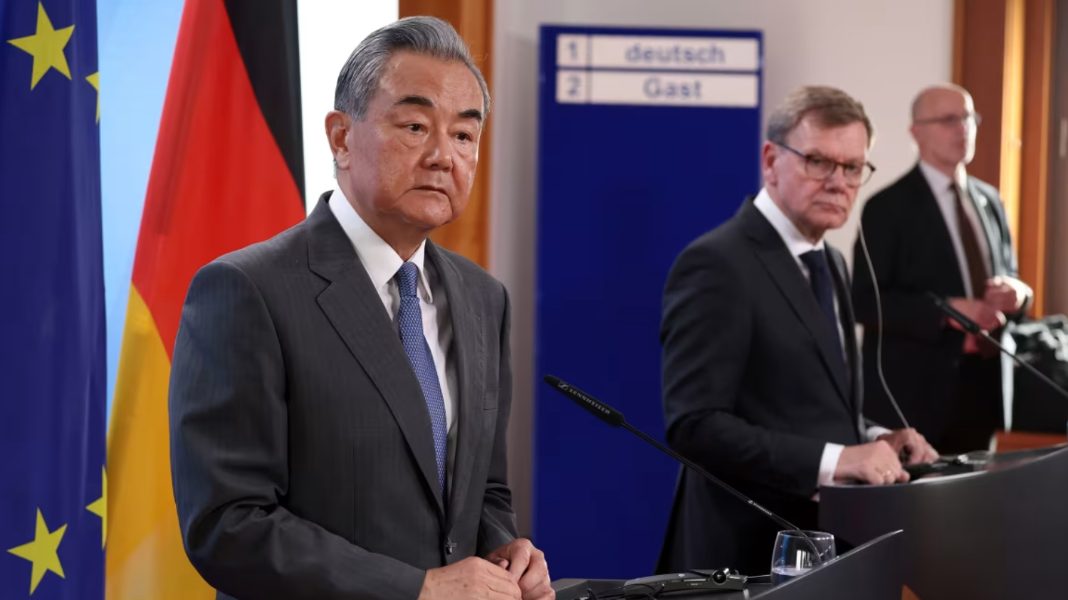
China Privately Signals It Can’t Afford a Russian Defeat in Ukraine, Despite Claims of Neutrality
In a closed-door meeting with the European Union’s new foreign policy chief Kaja Kallas, Chinese Foreign Minister Wang Yi reportedly admitted that Beijing cannot accept Russia losing its war against Ukraine. According to an official briefed on the nearly four-hour meeting in Brussels, Wang's remarks reveal a strategic concern that a Russian defeat could allow the United States to redirect its focus entirely toward China, intensifying pressure on Beijing in the broader geopolitical rivalry.
The conversation, described as “tough but respectful,” touched on wide-ranging issues from cyber security to trade imbalances, Taiwan, rare earths, and the Middle East. But the revelation about Ukraine stood out, appearing to contradict China’s long-standing public posture of neutrality. The official noted that Wang’s comments implied China might actually benefit from a drawn-out war in Ukraine, as it distracts Washington from its strategic contest with Beijing. This view echoes concerns voiced by critics that China’s stake in the Ukraine conflict is far deeper than it publicly admits.
In response to reports of Wang's comments, Chinese foreign ministry spokesperson Mao Ning reiterated Beijing’s official position during a Friday press briefing. “China is not a party to the Ukraine issue,” she said. “China’s position on the Ukraine crisis is objective and consistent, that is, negotiation, ceasefire and peace. A prolonged Ukraine crisis serves no one’s interests.” Mao emphasized that China supports a political resolution: “Together with the international community and in light of the will of the parties concerned, we will continue playing a constructive role towards this end.”
Yet despite this diplomatic language, China’s actions tell a more complicated story. Just weeks before Russia launched its full-scale invasion in February 2022, Chinese leader Xi Jinping and President Vladimir Putin announced a “no limits” partnership. Since then, political and economic ties between the two countries have grown, even as Beijing presents itself as a possible broker for peace.
China has come under increasing scrutiny for what Western nations say is its indirect support for Russia’s military campaign. Ukrainian officials have accused Chinese firms of providing drone parts and technologies that aid Russian missile production. Following a record Russian assault on Kyiv last week, Ukrainian Foreign Minister Andrii Sybiha posted photos of drone fragments reportedly recovered from the attack. One image appeared to show a piece of a Geran-2 combat drone with markings suggesting it was made in China on June 20.
In a pointed message, Sybiha highlighted the irony of a Russian attack damaging the Chinese Consulate General’s building in Odesa. “There is no better metaphor for how Putin continues to escalate his war and terror while involving others, including North Korean troops, Iranian weapons, and some Chinese manufacturers,” he said. “Security in Europe, the Middle East, and the Indo-Pacific is inextricably linked.”
Further complicating Beijing’s position are allegations that Chinese nationals have been found fighting alongside Russian forces in Ukraine—claims that China has flatly denied. Officials in Beijing have repeated their advice to Chinese citizens to avoid participating in any foreign military conflict.
While China insists it seeks peace, its geopolitical calculus appears to rest on the benefits of a weakened but not defeated Russia, locked in a war that continues to occupy Western attention. The result is a delicate balancing act: maintaining a façade of neutrality while quietly working to prevent a Russian collapse that could upset the global power dynamic in ways unfavorable to Beijing.
 Adapted by ASEAN Now from CNN 2025-07-07
Adapted by ASEAN Now from CNN 2025-07-07
-
 1
1
-
 3
3
-
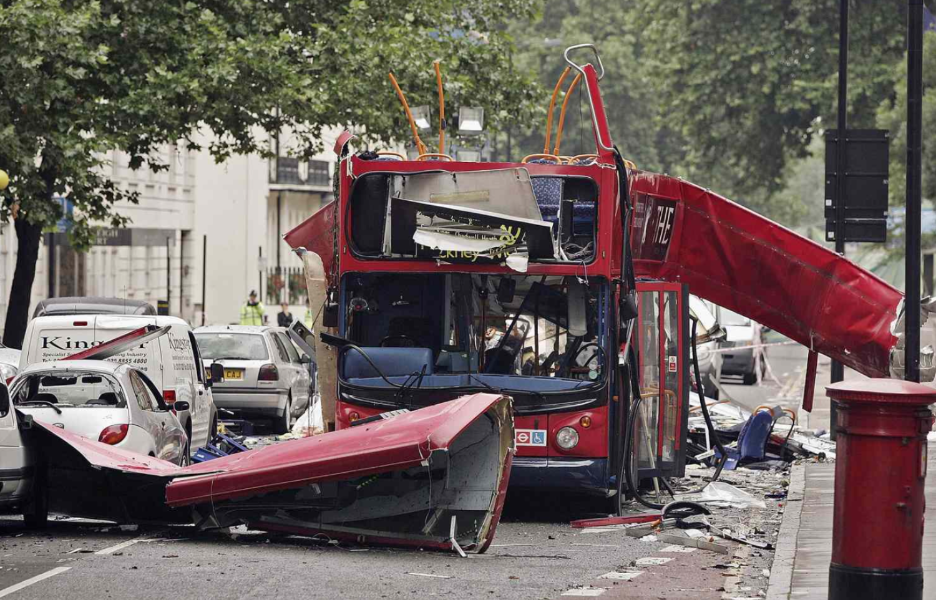
7/7: The Day That Shattered London’s Innocence
On July 6, 2005, London erupted in joy after an unexpected victory. Against the odds, the city had just secured the right to host the 2012 Olympic Games, narrowly beating Paris by four votes. Crowds filled Trafalgar Square to celebrate the triumph, unaware that their jubilation would be followed by one of the darkest days in modern British history.

While the capital slept off its celebrations, in a flat in Leeds, three men—Shehzad Tanweer, 22, Hasib Hussain, 18, and their mentor Mohammad Sidique Khan, 30—were making final preparations for an act of terror. A fourth man, Germaine Lindsay, 19, would join them later in Luton. Trained in al-Qaeda camps and radicalised over time, the group had spent months amassing chemicals and constructing bombs designed to cause mass carnage.
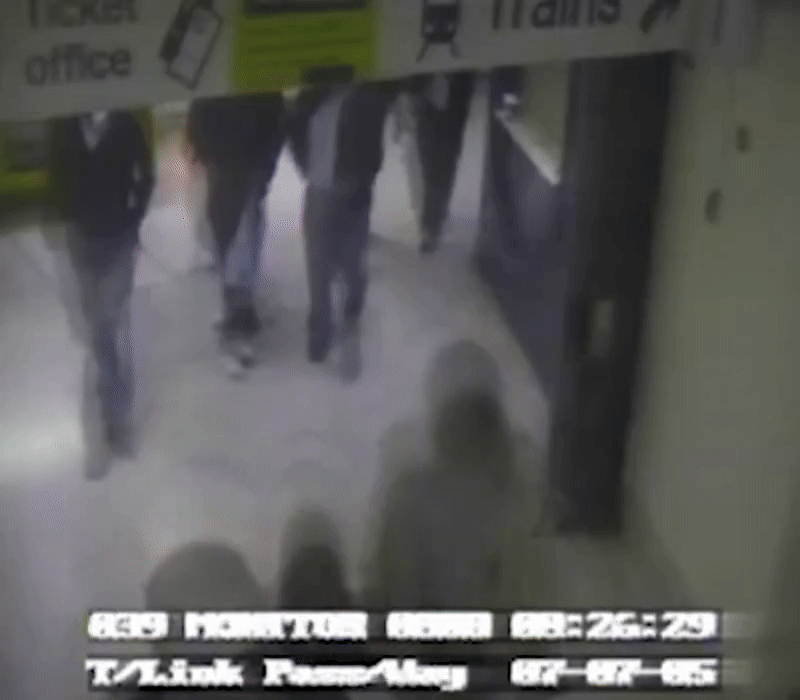
The devices were packed with nails and screws to maximise destruction. Neighbour Sylvia Waugh later recalled seeing the men early that morning: “When I was looking out of the window between 4.05am and 4.10am they were putting things into cars. I thought they were drug dealing in the car park.”

From Leeds, the men drove to Luton and met Lindsay at the train station. By 8:26am they were captured on CCTV at King’s Cross Underground station, adjusting the heavy rucksacks that contained their bombs. Minutes later, they separated to execute their coordinated attacks.
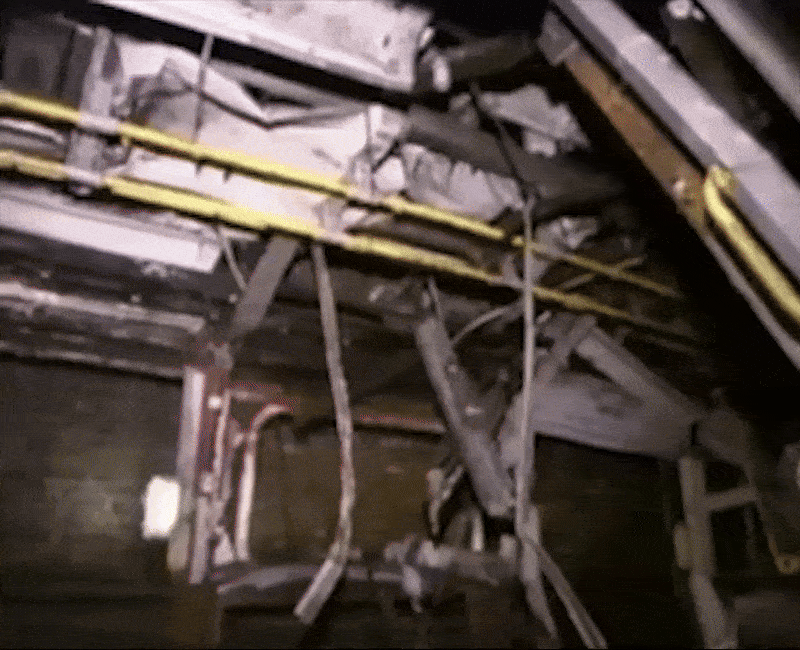
At 8:49am, three bombs detonated almost simultaneously on the London Underground, at Russell Square, Aldgate, and Edgware Road. The force of the explosions caused panic, darkness, and horror. “There was a white light. I didn’t hear an explosion. I felt as if I was lifted from the floor, I was going around in circles,” recalled Gill Hicks, who was gravely injured in the Russell Square blast.
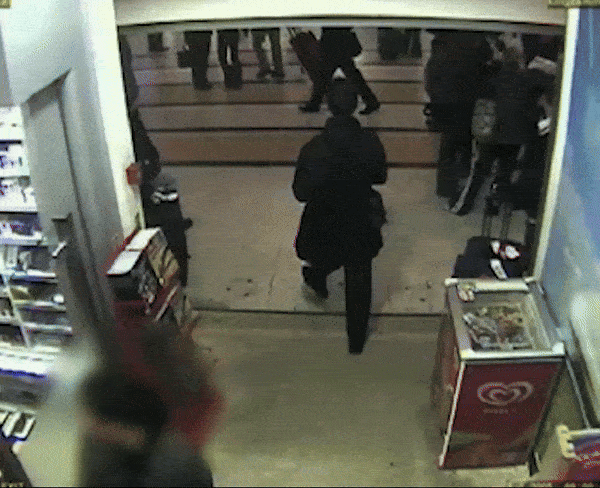
“When I woke up, I found myself on the train tracks... I was partly underneath the train and partly off. And part of the door was on my right thigh.” She would later learn both her legs were hanging on by “sinew and skin.” In her words, “I was desperately staying upright because, when help eventually came, I wanted to be able to wave to say, ‘I’m here, I’m alive’.”
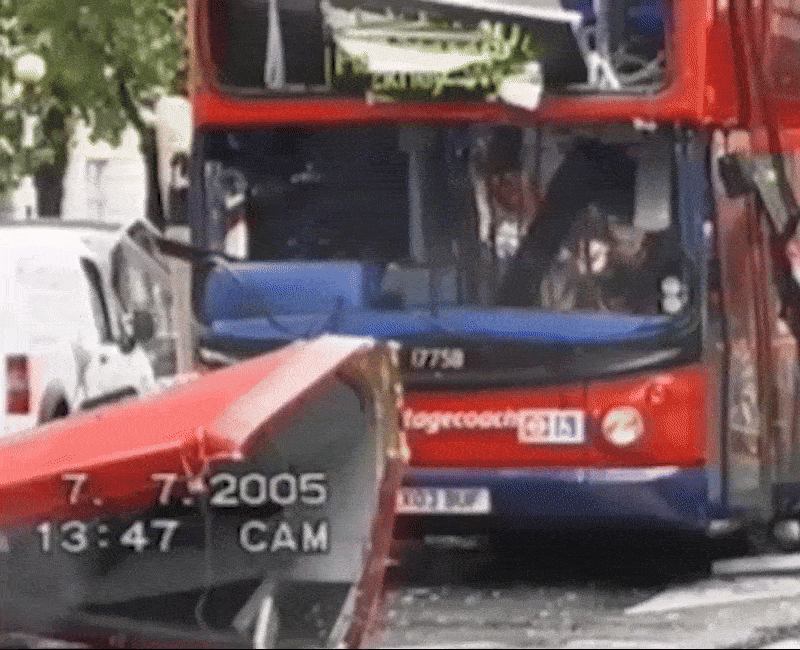
In the Edgware Road blast, six people were killed, including 22-year-old David Foulkes. His father, Graham, recalled, “David had a job opportunity in London... When I found out he was at Edgware Road, westbound, I knew he’d gone on the wrong train... He shouldn’t have even been there. And he was standing next to Mohammad Sidique Khan.”
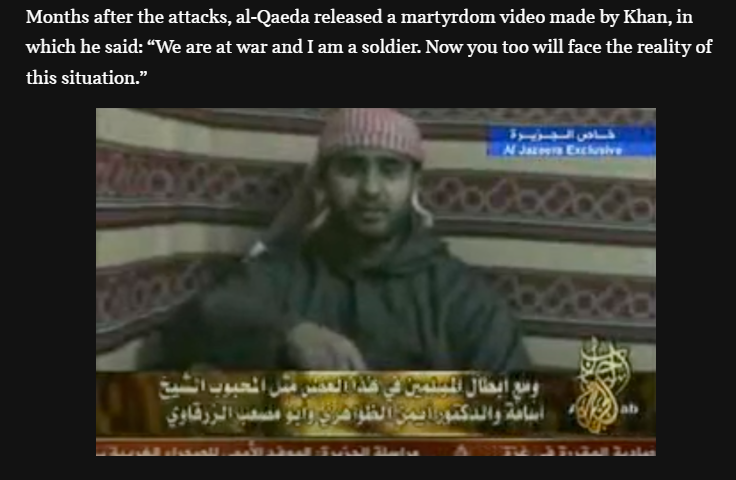
The fourth bomber, Hasib Hussain, failed to board a train and instead wandered the streets, trying unsuccessfully to reach his fellow attackers by phone. At about 9am, he purchased new batteries from WH Smith before boarding the crowded No. 30 double-decker bus at Tavistock Square.
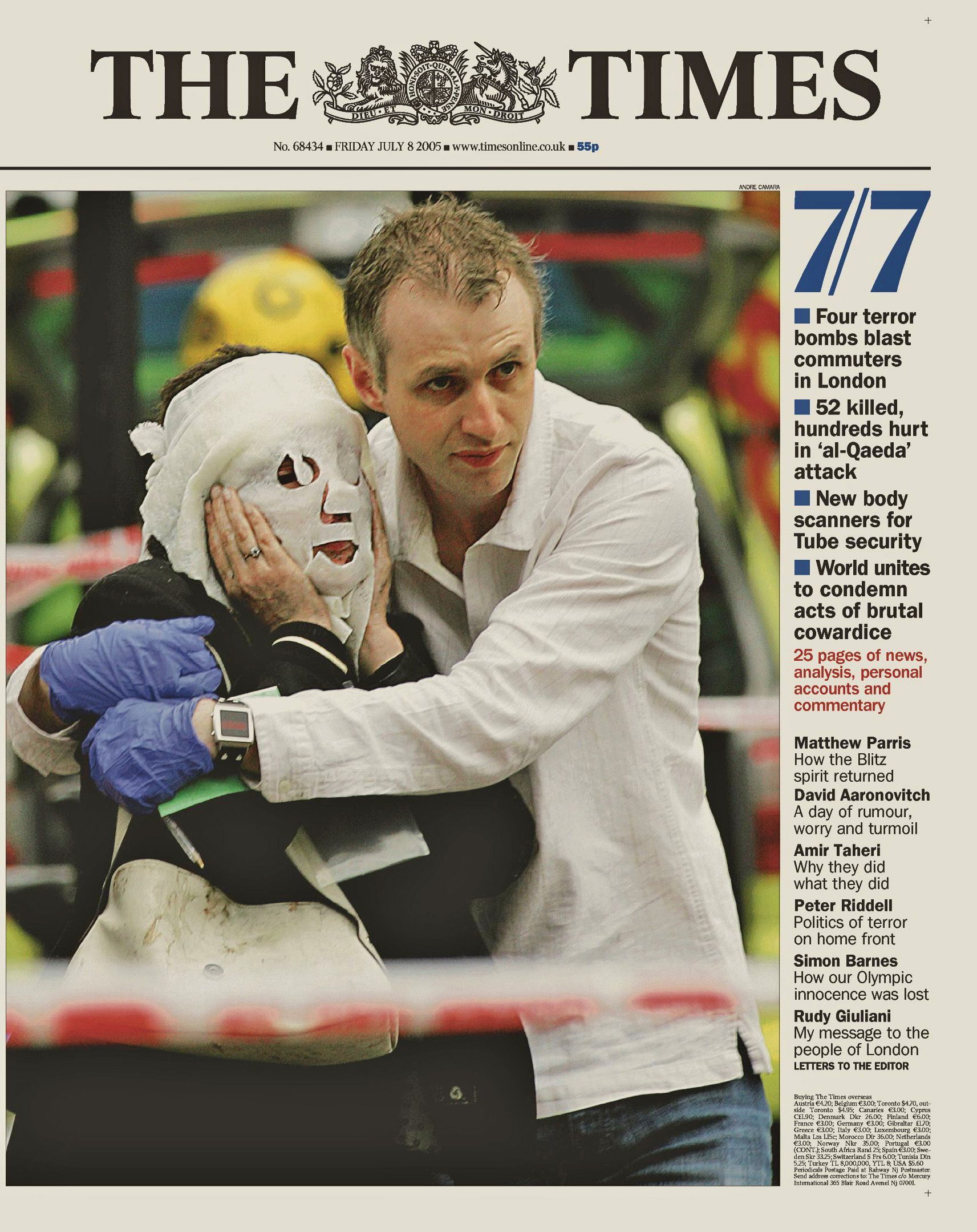
One of the passengers was 32-year-old Miriam Hyman, who had just called her father to reassure him she was safe. Moments later, Hussain detonated his bomb, killing 13 people. “I think of Miriam every day. That will never change,” said her sister, Esther. “Now I think of her, she makes me smile. I don’t focus on how we lost her.” The Hyman family established the Miriam Hyman Memorial Trust to combat extremism through education.
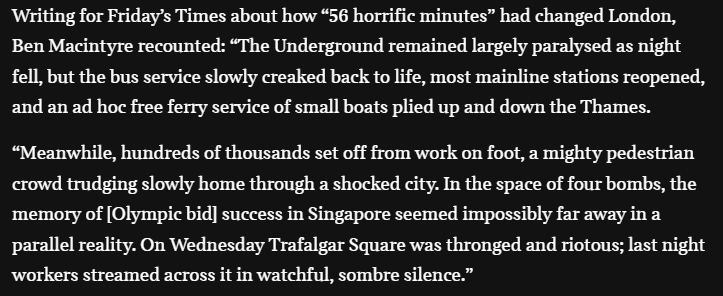
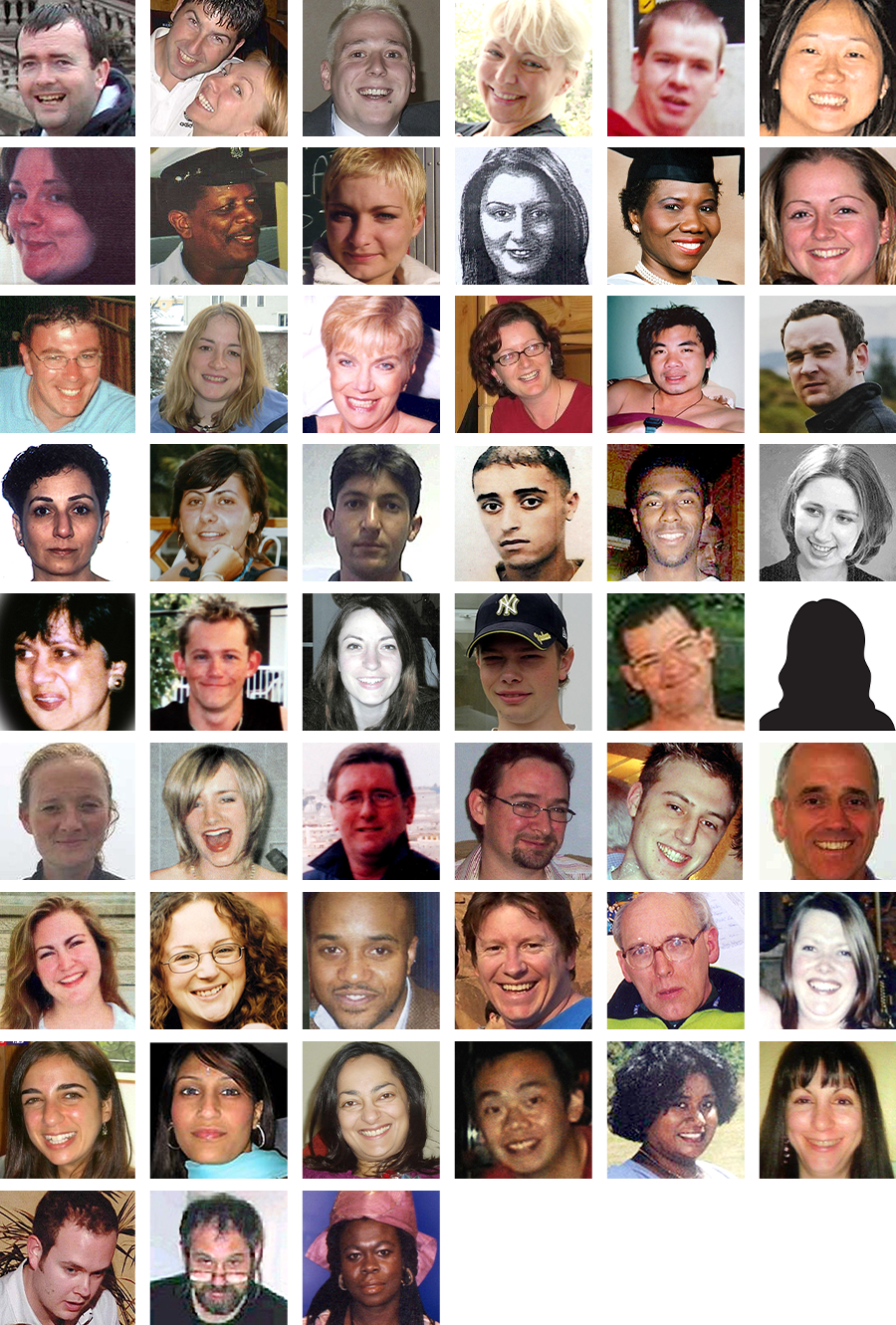
In the hours that followed, confusion reigned. Initial reports described “power surges” on the Underground. Millions were left stranded, phone networks overloaded, and emergency services overwhelmed. A major incident alert—Code Amber—was declared, and the entire public transport system shut down.
Delays and communication failures plagued the emergency response. At Russell Square, 22-year-old Phil Beer clung to life for 45 minutes without receiving first aid. He died in the carriage as another passenger tried to comfort him. Fire crews were ordered to wait for confirmation that tracks were safe, even as some police had already entered the tunnels. Radio systems across services were incompatible, and access to some victims was blocked by wrecked trains in narrow tunnels.
By midday, al-Qaeda-linked websites were claiming responsibility. A video message later emerged from Khan: “We are at war and I am a soldier. Now you too will face the reality of this situation.” Peter Clarke, who led the counterterrorism effort, said, “This was clearly a centrally directed al-Qaeda operation.”
Twenty years on, the legacy of 7/7 is complex and painful. It exposed vulnerabilities in emergency preparedness and forever changed how London thinks about safety and terrorism. For survivors and victims’ families, like Gill Hicks and the Hymans, life was irrevocably altered. Yet amid the horror, it also inspired resilience, remembrance, and resolve—to never forget, and never let hatred win.
 Adapted by ASEAN Now from The Times 2025-07-07
Adapted by ASEAN Now from The Times 2025-07-07
-
 1
1
-
-

When asked last month whether he would join Israel in attacking Iran, U.S. President Donald Trump gave an answer that typifies his foreign policy style: “I may do it. I may not do it. Nobody knows what I'm going to do.” While the world believed Trump had agreed to a pause for Iran to return to negotiations, he launched airstrikes anyway.

This is no accident. Trump has turned unpredictability into a deliberate strategy—one rooted in the so-called “Madman Theory,” a term made famous during Richard Nixon’s presidency. The theory suggests a leader can gain the upper hand by appearing irrational, keeping opponents off balance and uncertain of the next move. Peter Trubowitz, professor of international relations at the London School of Economics, notes, “[Trump] has put together a highly centralised policy-making operation, arguably the most centralised, at least in the area of foreign policy, since Richard Nixon.” He adds, “That makes policy decisions more dependent on Trump's character, his preferences, his temperament.”
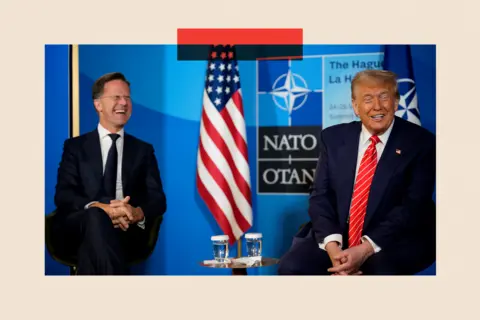
Trump’s strategy has often involved contradicting allies while cozying up to adversaries. In his second term, he embraced Vladimir Putin while publicly insulting traditional allies like Canada and Denmark. He even floated annexing Greenland and called into question America's commitment to NATO’s mutual defense pact. “I think Article 5 is on life support,” said former UK Defence Secretary Ben Wallace. Meanwhile, Dominic Grieve, a former Conservative Attorney General, declared, “For now the trans-Atlantic alliance is over.”

This attitude appeared to resonate inside the White House. Leaked text messages from senior Trump officials showed disdain for European partners. “I fully share your loathing of European freeloaders,” U.S. Defense Secretary Pete Hegseth wrote, adding, “PATHETIC.” At a summit in Munich, Vice President JD Vance declared the U.S. would no longer guarantee Europe’s security.

Nevertheless, Trump’s approach has yielded results. Only months ago, UK Prime Minister Keir Starmer pledged to increase defense spending from 2.3% to 2.5% of GDP. By the time of the most recent NATO summit, that had risen to 5%, now matched by other alliance members. “My sense is that most people in Trump's orbit think that unpredictability is a good thing, because it allows Donald Trump to leverage America's clout for maximum gain,” said Trubowitz.
Trump isn’t the first to use unpredictability as a diplomatic tool. In 1968, Nixon told his national security advisor to convince the North Vietnamese he was “crazy,” to force them into agreement. “That’s the madman theory,” says Professor Michael Desch of Notre Dame.
Yet this same unpredictability has created vulnerabilities. “It’s very hard to know what’s coming from day to day,” says Professor Julie Norman of University College London. She warns that the tactic could backfire, making the U.S. seem unreliable. “People won’t want to do business with the U.S. if they don’t trust the U.S. in negotiations,” she said.
Trump’s unpredictability has also failed to win over adversaries like Vladimir Putin or Iran. Though Ukrainian President Volodymyr Zelensky was pressured into granting the U.S. access to valuable mineral rights, Putin remains unmoved. Trump recently lamented Putin’s refusal to end the war in Ukraine.
Meanwhile, his strikes on Iran may push the Islamic Republic further toward acquiring nuclear weapons. “I think it’s now highly likely that Iran will make the decision to pursue a nuclear weapon,” says Desch. Mohsen Milani, professor at the University of South Florida, adds, “The exact opposite happened” from what the U.S. and Israel had hoped. “That was the Israeli and American calculation too… that Iran is going to surrender quickly or the whole system is going to collapse.”
As Trump’s strategy reshapes global alliances, Europe is beginning to reconsider its dependency on U.S. defense guarantees. German Chancellor Friedrich Merz has urged Europe to become more operationally independent. “They're not going to snap back to the way they were before Trump took office,” says Trubowitz.
While European leaders may try to keep Trump onside through flattery and policy concessions—NATO Secretary General Mark Rutte once texted, “You will achieve something NO president in decades could get done”—the inherent instability remains. “Mr. Rutte, he's trying to embarrass you, sir. He's literally sitting on Air Force One laughing at you,” quipped former Trump aide Anthony Scaramucci.
Trump’s foreign policy may be built partly on strategy and partly on personality, but either way, it is working—at least on America’s allies. Whether it can reshape relations with enemies remains a far more uncertain proposition.
 Adapted by ASEAN Now from BBC 2025-07-07
Adapted by ASEAN Now from BBC 2025-07-07
-
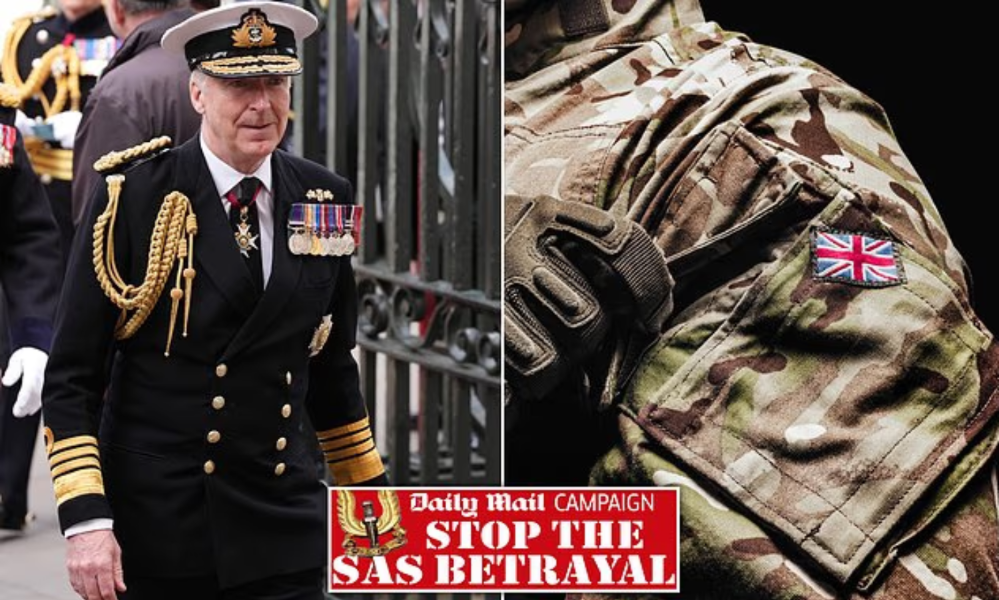
Elite Forces Demand Justice: Special Units Unite Against Legal Pursuit of Veterans
In an unprecedented move, leaders of Britain’s most elite military units have come together to condemn what they call a relentless legal pursuit of veterans, warning that the government’s stance is damaging morale and undermining national security.
For the first time in history, representatives of the Special Air Service (SAS), Special Boat Service (SBS), and Special Reconnaissance Regiment (SRR) have jointly appealed to the Chief of the Defence Staff, Admiral Sir Tony Radakin, to halt what they call “lawfare” against former soldiers. Their letter demands immediate action, expressing deep frustration with political attempts to dismantle legal protections for those who served during the Northern Ireland conflict.
The controversy stems from Labour’s stated intent to repeal the Northern Ireland Troubles (Legacy and Reconciliation) Act, introduced by veterans minister Johnny Mercer in 2023. The Act created an independent commission to investigate deaths during the Troubles while protecting veterans from repeated legal action. Labour’s 2024 election manifesto pledged to amend it, citing a Belfast court’s ruling that the law’s amnesties violated the European Convention on Human Rights.
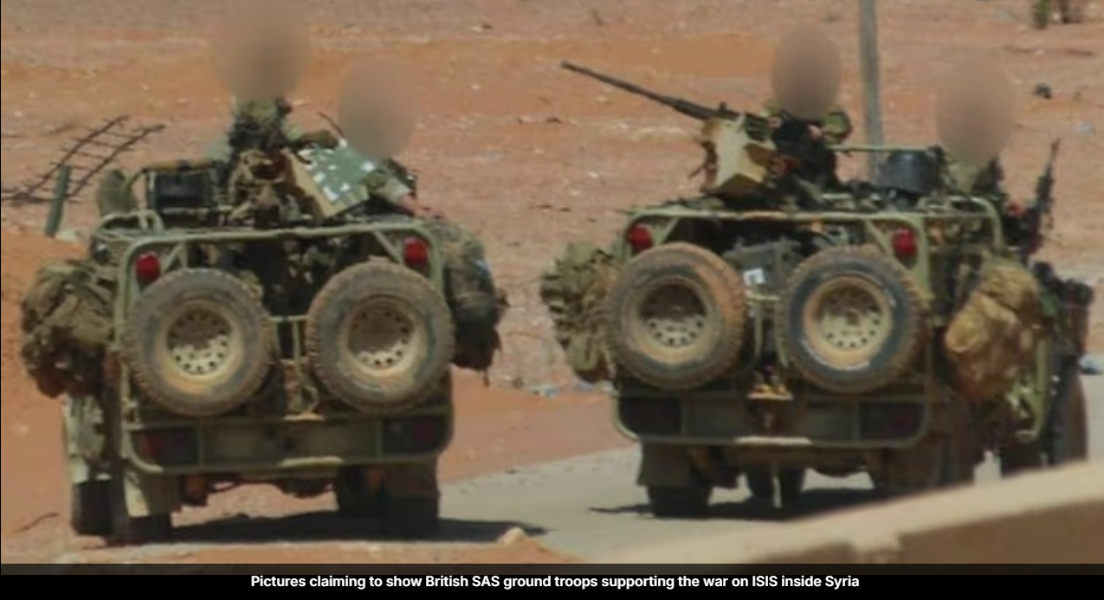
At the heart of the debate are 12 SAS soldiers who could face murder charges for their role in the 1992 Clonoe shootings in County Tyrone, where four armed IRA members were killed. A recent coroner’s ruling deemed their use of force unlawful. Despite previous clearances, campaigners argue that the terrorists’ human rights were violated.

The special forces associations, in a rare and unified statement, declared: “A line must be drawn under the legacy matters arising from the conflict and that the time has come to bring closure to events that may never reach a just or conclusive end. We believe it is time to bring certainty, closure and fairness to this issue, not only for those who served but also for their families.”
Former SAS Commanding Officer Lieutenant Colonel Richard Williams described the lack of government response as a “critical crisis of trust” within the ranks. “I remain utterly dumbfounded by the lack of overt support shown by the current or past leadership of the MoD for these brave and skilled British soldiers. The consistent, sweaty-palmed silence... smacks of moral cowardice.”
Backing from senior defence voices and over 165,000 signatures on a UK Parliament petition has added pressure ahead of a key debate scheduled for July 14. Political figures such as David Davis MP, a former SAS reservist, and Conservative defence spokesman Mark Francois, have rallied behind the campaign. “Who would sign up to serve a government that plainly doesn’t have the back of troops?” Francois asked.
Further highlighting the issue, an SAS veteran—known only as “Jay Cal”—who was recently cleared after a three-year legal ordeal, shared his anger on a U.S. podcast. He and four colleagues were accused of murder during a 2022 raid in Syria, despite the targets being suicide bombers. Jay claimed the investigation was launched by General Sir Gwyn Jenkins for self-serving reasons, stating: “These guys like Sir Gwyn sit in their ivory towers in Westminster making these decisions which are destroying people’s lives.”
Jay alleged that fear of similar treatment is leading some SAS soldiers to refuse deployments. “SAS soldiers are saying they don’t want to deploy on operations because what happened to us will happen to them. It is a disgrace,” he said.
Despite being cleared, none of the “Syria Five” has received an apology. The Ministry of Defence has faced intense criticism for what troops describe as a lack of support. Former Army commander Colonel Hamish de Bretton-Gordon echoed those concerns, warning, “To lose any of their mercurial capabilities would make us less safe at home and abroad.”
A Ministry of Defence spokesperson defended their stance, saying the Legacy Act was flawed and risked granting immunity to terrorists: “We inherited a mess... that was not supported by a number of Veterans groups.”
With the debate intensifying, the military community continues to call for decisive leadership to bring an end to what they see as years of betrayal.
Related Topics:
Betrayed Warriors: The SAS Veterans Facing Legal Persecution
Breaking the Silence: Former UK Special Forces Reveal Allegations of War Crimes
 Adapted by ASEAN Now from Daily Mail 2025-07-07
Adapted by ASEAN Now from Daily Mail 2025-07-07
-
- Popular Post
- Popular Post

Manchester Airport Clash: Brothers Accused of Violent Outburst Against Stranger and Police
Two brothers have been accused of launching a violent attack on a fellow traveller and police officers at Manchester Airport, in what prosecutors described as an "entirely unlawful" incident motivated by anger rather than self-defence. The court heard that the confrontation, which began inside a Starbucks café, escalated to a physical altercation with three police officers, two of whom were armed.
The two Pakistani brothers who punched a female police officer in the face at Manchester Airport last summer claimed that they are innocent in court today.
— Visegrád 24 (@visegrad24) February 13, 2025
They were released on bail and will back for trial in late June
pic.twitter.com/prvmxgSEvgMohammed Fahir Amaaz, 20, and his older brother Muhammad Amaad, 26, appeared before a jury on charges relating to an altercation that took place on July 23 last year in Terminal 2 of the airport. Prosecuting barrister Paul Greaney KC told the court that the case was straightforward, noting that both CCTV footage and body-worn police cameras had captured the events in question.
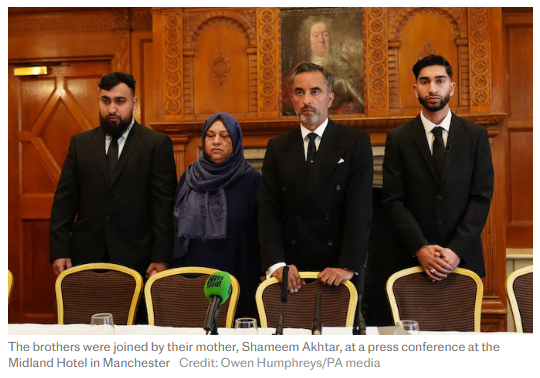
“The events you are concerned with were captured by CCTV cameras and, in relation to the events in the payment area, on the body-worn cameras of police officers as well,” Mr Greaney said. “So you will not have to depend only on the recollections of witnesses. You will also be able to see with your own eyes what happened.”
According to Mr Greaney, the brothers had come to the airport with their young nephew to meet their mother, who was returning from a trip to Qatar. Upon spotting a man she had reportedly had an earlier dispute with, she pointed him out to her sons inside Starbucks. The man, Abdulkareem Ismaeil, was travelling with his wife and three young children when he was approached by the brothers.
CCTV footage played in court showed Mohammed Fahir Amaaz confronting Mr Ismaeil before delivering a headbutt to his face and launching further punches, all while other travellers and children looked on. “It is clear that on the flight and/or shortly after it landed, something happened between the defendants’ mother and Abdulkareem Ismaeil that made the defendants’ mother unhappy,” said Mr Greaney. He added, “The violence was entirely unlawful and delivered out of anger, not in self-defence.”
Though Mr Ismaeil declined to cooperate with police or provide a statement, Mr Greaney argued that his absence did not weaken the case. “The absence of evidence from him makes it no less easy to conclude that the first defendant behaved unlawfully in Starbucks,” he said.
The incident continued in the terminal’s car park, where police officers attempted to arrest the brothers. CCTV footage showed that as officers tried to move Mohammed Fahir Amaaz from a payment machine, he resisted, prompting his brother Muhammad Amaad to intervene.
“In the moments that followed, the first defendant also assaulted Pc Cook and then Pc Ward too, breaking her nose,” Mr Greaney stated. “The defendants used a high level of violence.”
One of the officers, Pc Marsden, was dragged to the ground while being held in a headlock. In a moment captured on camera, the officer responded by kicking Amaaz in the face and appearing to stamp on his head. Mr Greaney acknowledged that this may appear “rather shocking in the cold light of day” but urged jurors to view it in the context of the danger posed, especially given the concern that an officer’s firearm could be seized in the chaos.
The court heard that Amaaz is accused of assaulting Pc Marsden and Pc Ward, causing them actual bodily harm, as well as the assault of Pc Cook and the earlier attack on Mr Ismaeil. His brother Amaad is charged with assaulting Pc Marsden.
Both defendants, from Rochdale, deny the charges. Mr Greaney concluded, “What you have seen is the two defendants acting offensively, not defensively. The position of the prosecution is that their apparent defence of self-defence is false.”
Related Topics:
Brothers Plead Not Guilty to Assaulting Police Officers at Manchester Airport
Reform UK to Pursue Private Prosecution in Manchester Airport Incident
Manchester Armed Policeman Suspended After Video of Man being Kicked in Head
 Adapted by ASEAN Now from The Telegraph 2025-07-07
Adapted by ASEAN Now from The Telegraph 2025-07-07
The trial continues.
-
 1
1
-
 2
2
-
 1
1
-
- Popular Post
- Popular Post
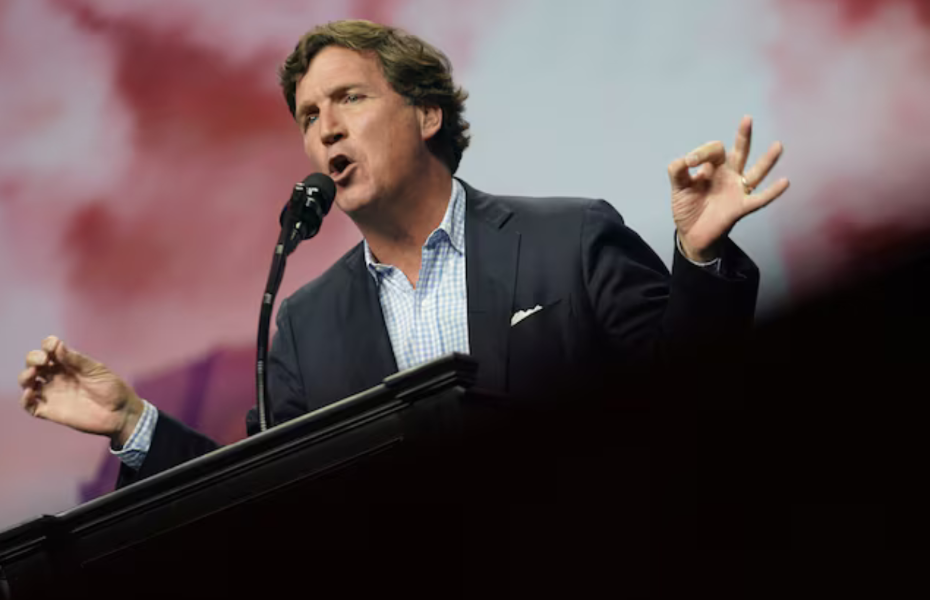
Tucker Carlson to Air Interview with Iranian President Amid Nuclear Tensions
Conservative talk show host Tucker Carlson announced on Saturday that he has conducted an interview with Iranian President Masoud Pezeshkian, a rare exchange between a prominent American media figure and Iran's new leader. Carlson shared the news in an online post, stating that the interview, conducted remotely via a translator, would be released “in a day or two” after editing is complete.
Our interview with the president of Iran.
— Tucker Carlson (@TuckerCarlson) July 5, 2025
Watch it first at https://t.co/sLkXnGLauL. pic.twitter.com/SY4KvgA1lbThe former Fox News anchor said he had focused on straightforward questions in the conversation, avoiding what he described as queries that were unlikely to yield truthful responses. “What is your goal? Do you seek war with the United States? Do you seek war with Israel?” Carlson said, summarizing some of the questions he asked Pezeshkian.
“There are all kinds of questions that I didn’t ask the president of Iran,” Carlson added, “particularly questions to which I knew I could get an not get an honest answer, such as, ‘was your nuclear program totally disabled by the bombing campaign by the U.S. government a week and a half ago?’”
The interview comes at a tense moment in U.S.-Iran relations, following a recent series of U.S. military strikes on Iran, which were themselves prompted by Israeli attacks last month. The ongoing back-and-forth has reignited global concern over Tehran’s nuclear ambitions.
Speaking on Friday, President Trump addressed the nuclear situation directly. He said he believed the recent U.S. strikes had “permanently” set back Iran’s nuclear capabilities. However, he acknowledged that Tehran could potentially restart its program at another location. “Iran has not agreed to inspections of its nuclear program or to give up enriching uranium,” Trump said. “We are not going to allow them to resume their nuclear program. They want to meet with me.”
For his part, Iranian President Pezeshkian stated last month that Iran has no intention of developing nuclear weapons. However, he affirmed Iran’s commitment to pursuing its right to nuclear energy and scientific research.
Carlson’s interview with Pezeshkian is expected to draw considerable attention, not only for the questions posed but for the broader diplomatic context in which it arrives. With U.S.-Iran relations at a critical juncture, and Israeli-American coordination against Iran growing increasingly assertive, the conversation could offer a rare glimpse into the thinking of Iran’s leadership—even if, as Carlson admits, some answers may remain elusive.
 Adapted by ASEAN Now from Reuters 2025-07-07
Adapted by ASEAN Now from Reuters 2025-07-07
-
 3
3
-
 1
1
-
- Popular Post
- Popular Post

Elon Musk Launches New Political Force: The America Party
Elon Musk has announced the formation of a new political party in the United States, marking a dramatic escalation in his growing involvement in the nation’s political landscape. The billionaire entrepreneur, known for his leadership of Tesla, SpaceX, and X (formerly Twitter), revealed on Saturday that he had created what he is calling the "America Party."

The move follows Musk's recent and very public falling-out with President Donald Trump. Although once a vocal supporter of the Trump administration's policies, particularly on business deregulation and space exploration, Musk has increasingly distanced himself from the former president, citing concerns over political dysfunction and corruption.
In a post on his social media platform X, Musk, 54, explained that the decision to launch the America Party came in direct response to a poll he conducted online the previous day. “By a factor of 2 to 1, you want a new political party and you shall have it!” Musk wrote Saturday evening. “When it comes to bankrupting our country with waste and graft, we live in a one-party system, not a democracy. Today, the America Party is formed to give you back your freedom.”
Though the details of the new party’s platform have not been publicly disclosed, Musk's language suggests it will position itself as an alternative to what he sees as a corrupt bipartisan status quo. His post was a sharp rebuke of both Democratic and Republican leadership, hinting that the America Party could attempt to draw disillusioned voters from across the political spectrum.
Musk has increasingly used X as a platform to share his political opinions and policy critiques, often with a tone that blends libertarian ideals with populist frustration. The announcement of the America Party marks his most concrete step yet into formal political organizing, rather than simply voicing support or opposition to candidates or ideas.
The billionaire’s foray into political party formation is also likely to send shockwaves through both major parties. Trump’s camp has not yet responded to Musk’s statement, but the timing of the announcement—just months ahead of the general election—could prove disruptive, especially if the America Party attempts to field candidates or influence the national conversation.
Whether Musk's new party will become a meaningful force in American politics or simply a vehicle for protest against the existing system remains to be seen. But with his vast financial resources, massive social media reach, and growing cadre of online supporters, Musk has once again positioned himself as a powerful—and unpredictable—player in the American political arena.
 Adapted by ASEAN Now from The Telegraph 2025-07-07
Adapted by ASEAN Now from The Telegraph 2025-07-07
-
 1
1
-
 1
1
-
 2
2
-
 3
3
-
@josephbloggs your baiting troll post has been removed. Please discuss the topic not other posters.
-
 1
1
-
-
- Popular Post
@Harrisfan enough of the diversion attempts and read the OP. Any more posts removed and you will find it more than posts
-
 5
5
-

Can Diddy Reclaim His Throne? A Legacy Tarnished and a Future in Question
In the wake of a divisive verdict in Sean "Diddy" Combs' high-profile trial in New York, tensions flared outside the courthouse as supporters and critics clashed in the summer heat. Some protesters argued the music mogul should have been found guilty on more serious charges, while others—chanting "Free Diddy" and dousing themselves in baby oil—celebrated what they saw as a vindication.
The mixed jury verdict offered no easy resolution. While Combs was acquitted of racketeering conspiracy and sex trafficking, he was convicted on two counts of transporting women, including former girlfriend Cassie, across state lines for sex acts and prostitution. The convictions could carry a sentence of up to 10 years each, though legal experts anticipate a lighter sentence, potentially allowing Combs to walk free within a few years.
Despite the serious charges and the salacious details that emerged—graphic accounts of drug-fueled "freak offs" involving male escorts, violence, and baby oil—some industry insiders believe Combs may attempt a comeback. “He was one of the most famous people in hip-hop,” said August Brown, music writer for the Los Angeles Times. “He was an incredibly important figure in evolving both that genre and the music industry as a whole into a commercial juggernaut.”
Indeed, Combs’ influence on 1990s and early 2000s music is undeniable. As founder of Bad Boy Records, he launched the careers of iconic artists like The Notorious B.I.G., Mary J. Blige, Faith Evans, and 112. He also collaborated with Mariah Carey, Usher, and Busta Rhymes, and earned three Grammy Awards, including for his 1997 hit “I’ll Be Missing You,” a tribute to B.I.G.
But the trial dragged a darker side of Combs into the spotlight. The jury was asked to decide whether his actions amounted to criminal coercion or were part of a consensual, albeit extreme, lifestyle. “The jury was just unpersuaded that what amounted to an extremely baroque and violent and drug-stoked sex life on Diddy's behalf amounted to a criminal organisation,” Brown explained to BBC World Service.
Still, the two convictions and the sordid revelations may be impossible to erase from the public consciousness. “I cannot imagine any kind of redemption arc as far as him remaining as an artist or a music mogul,” Brown said. “I think the public will remember him as an important figure whose name is now permanently associated with this very-difficult-to-process range of charges.”
Others in the industry agree. “He's definitely going to try, but I think the damage is just too irreparable at this point,” said Alvin Blanco, content director of Hiphopwired.com. Mark Anthony Neal, professor at Duke University, echoed the sentiment: “There’s no doubt” Combs’ legacy is tarnished, especially given his role in taking hip-hop “from the ghettos to the mainstream of America to the global mainstream.”
Even before the trial, Combs’ relevance in the music world had waned. “He doesn't really have much of a music career any more, and he hasn't for about 15 years,” said Variety’s Jem Aswad. “He just moved on to other businesses—beverages, apparel... Anything he did in music over the last 15 years was almost just for fun.”
Yet his profile had not completely faded. His 2023 album The Love Album: Off The Grid was Grammy-nominated, and he received MTV’s Global Icon award. And in the digital age, fallen stars can retain fanbases. R. Kelly, serving 30 years for sex trafficking, still attracts millions of listeners online.
Supporters believe Diddy’s fan loyalty might outlast his legal woes. Anoushka Mutanda-Dougherty, host of the Diddy on Trial podcast, said, “I feel like he will be able to reclaim a top spot in hip-hop just because of the sheer amount of support we’ve seen online and here at the courthouse… He won’t be the first musician to be a convicted criminal who carries on having a music career, especially in hip-hop.”
But for others, the stains of the case are too indelible. Angela Star, a content creator who watched the verdict live, summed up the lasting impression: “His image is tainted, and when you think of Diddy now, you think of…” She let the sentence trail off, holding up a bottle of baby oil in silence.
Whether Sean Combs will stage a comeback or fade into infamy remains to be seen. What’s clear is that the legacy he once built has been irrevocably transformed.
 Adapted by ASEAN Now from BBC 2025-07-05
Adapted by ASEAN Now from BBC 2025-07-05
-
- Popular Post
- Popular Post

Trump's 'Golden Age': A Two-Week Blitz of Political Dominance and Policy Wins
President Donald Trump has entered what allies and even some critics are calling the most powerful phase of his presidency, as he capped a whirlwind fortnight of domestic and international achievements with the passage of the “One Big Beautiful Bill Act.” At 79, the president is riding a wave of political and legislative victories that many consider unprecedented, even as skeptics warn of deepening national divides.

The legislation, passed on Thursday, fulfills several of Trump’s long-standing campaign promises, including tax cuts on tips, overtime, and Social Security benefits. Trump plans to sign the bill at a festive Independence Day event on the White House lawn, where B-2 stealth bombers will conduct a flyover in tribute to their role in the June 21 U.S. airstrikes on Iran’s nuclear sites. Just two days after the strikes, Trump brokered a surprise ceasefire between Israel and Iran — a diplomatic breakthrough that stunned foreign policy observers.
Trump's influence was also on full display at the recent NATO summit, where he successfully pressured member nations to commit to increasing military spending to 5% of GDP by 2035. Back home, the Supreme Court handed him key wins on immigration policy and judicial power, while CBS’s parent company agreed to pay $16 million after airing a deceptively edited interview with Vice President Kamala Harris.
In a flurry of additional developments, Canada scrapped its digital services tax on American tech companies, the University of Pennsylvania revoked accolades from transgender swimmer Lia Thomas, and the administration unveiled a forthcoming trade deal with Vietnam. The stock market soared to record highs while illegal border crossings dropped to record lows.
The sweeping legislation also provides $25 billion for Trump’s "Golden Dome" missile defense initiative, expands tax deductions for car loans, and lifts the cap on state and local tax deductions to $40,000. These provisions have drawn praise from Republicans in high-tax states like New York and New Jersey.
“I didn’t vote for him and I’m not always aligned with his approach, but his success on the domestic and international front in such a compressed period of time is nothing short of remarkable,” said Michael LaRosa, a former Biden White House spokesman. “It’s all due to his impressive use of political and executive power.”
Another former Biden official added, “You voted for it because you’re scared of the guy. And frankly, that’s impressive, given that Biden never invoked fear in anyone.”
Chris LaCivita, co-manager of Trump’s 2024 campaign, framed the momentum as a historic political shift. “If you work, pay taxes and aspire for a better tomorrow, you are voting Republican,” he said. “This transformation in political power is because of the leadership and determination of one person — President Trump.”
Kellyanne Conway, a longtime Trump ally, declared, “These have been the most consequential two weeks of Trump’s second term, as he makes peace deals, trade deals and tax deals, everywhere all at once. America is in its Golden Age.”
Vivek Ramaswamy, now running for governor of Ohio, echoed the enthusiasm. “President Trump is on a roll,” he said. “By 2026, it will be up to the states to lead the way on other critical fronts.”
Still, challenges remain. Trump has set a July 9 deadline for finalizing bilateral trade deals to prevent retaliatory tariffs that could spike consumer prices. Thus far, only agreements with China, the UK, Vietnam, and a "roadmap" with India have been announced. Meanwhile, Federal Reserve Chair Jerome Powell has resisted pressure to lower interest rates, keeping borrowing costs high despite easing inflation.
American University professor Leonard Steinhorn noted that Trump’s dominance, while potent, is polarizing. “He presides over half a country that believes he is taking us on a very bad path,” he said, warning of authoritarian tendencies.
LaRosa urged fellow Democrats to learn from Trump’s strategy. “Even though I may disagree with him substantively, his effective use of power as an executive and party leader is something to admire,” he said. “Democrats should learn from him and replicate it the next time we have the keys.”
 Adapted by ASEAN Now from NYP 2025-07-05
Adapted by ASEAN Now from NYP 2025-07-05
-
 2
2
-
 2
2
-
 3
3
-
 3
3
-
- Popular Post
- Popular Post
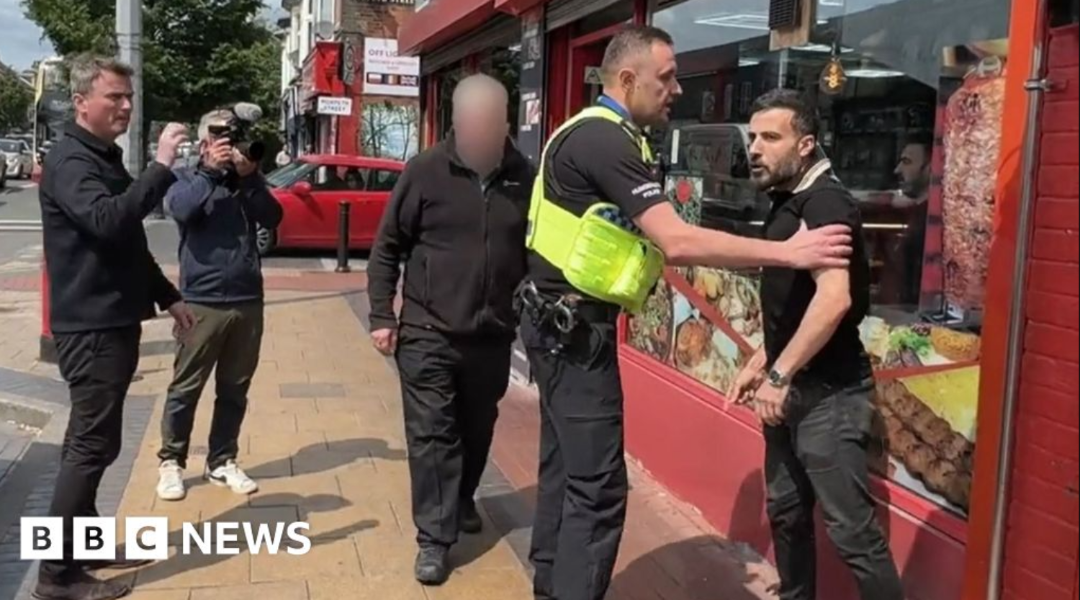
Behind the Counter: Mini Mart Workers Caught in the Crossfire of Britain's Illegal Tobacco Trade
An undercover BBC investigation has exposed the alarming scale of illegal tobacco sales taking place in mini marts across British high streets, with law enforcement agencies admitting they are struggling to contain the growing problem. Organised crime groups are suspected of being behind the illicit trade, reaping profits comparable to those made from heroin and cocaine, according to Trading Standards.
Describing the situation as a "war," Trading Standards officers say their efforts are being hampered by a severe lack of resources. Shops implicated in the scandal have been found to employ asylum seekers who have no legal right to work in the UK — a troubling revelation that points to broader issues of exploitation and illegal employment.
HM Revenue and Customs estimates that the illegal tobacco market is costing the UK economy at least £2.2 billion in lost tax revenue. The true figure could be even higher, given the difficulty in tracking underground supply chains.
The Home Secretary, Yvette Cooper, responded to the BBC's findings by condemning the actions of the criminal networks involved. “It is a disgrace that criminal gangs are trying to abuse our high streets,” she said. Cooper added that the government has ramped up enforcement since the most recent election: “We have increased raids and arrests for illegal working by 50%.”
In a striking moment captured during the BBC’s investigation, UK editor Ed Thomas confronted shop workers outside mini marts where illicit cigarettes had been discovered. Some of the contraband was hidden inside concealed tunnels and secret compartments within the shops — a tactic that highlights the lengths these operations will go to in order to avoid detection. The confrontation quickly turned heated, as workers reacted angrily to being approached by the reporter.
The revelation that illegal tobacco sales are not only thriving but are also deeply embedded in high street retail presents a significant challenge for authorities. With limited manpower and rising levels of sophistication from criminal groups, Trading Standards and HMRC appear to be fighting an uphill battle. The use of vulnerable individuals, such as asylum seekers, to front these operations further complicates the issue, blurring the line between perpetrators and victims.
As pressure mounts on the government to act decisively, the investigation raises serious questions about how such widespread activity has managed to flourish with so little oversight. Despite recent increases in enforcement activity, many say it is still not enough to keep up with the scale and reach of the illicit trade.
Until the government can provide greater support and coordination to law enforcement agencies and address the systemic vulnerabilities being exploited, the illegal tobacco market seems set to remain a lucrative and dangerous fixture on Britain’s high streets.
 Adapted by ASEAN Now from BBC 2025-07-05
Adapted by ASEAN Now from BBC 2025-07-05
-
 1
1
-
 2
2
-

Forecasting Fear: Has the Met Office Lost Sight of Its Mission?
While much of southern England recently sweltered in a record-breaking heatwave, other parts of the UK, such as Northumberland, experienced cool breezes off the North Sea. The UK Met Office promptly declared it “virtually certain” that human activity was responsible for the hottest June in England since 1884 and the second hottest across the UK as a whole. This declaration might appear to confirm the obvious, but upon closer inspection, it reveals a troubling trend: the nation's chief weather forecaster appears increasingly entangled in climate activism rather than objective meteorology.

Yes, greenhouse gases do contribute to global warming, but attributing exact temperature figures to human influence requires nuance. For example, the much-publicised 34.7°C recorded at St James’s Park in London occurred at a notoriously unreliable “class 5” weather station, one with an acknowledged error margin of up to 5°C. This station sits next to a busy tarmac path in the middle of the capital, where the well-documented urban heat island effect further amplifies temperatures. According to research by engineering firm Arup, London’s urban heat island adds an average of 4.5°C to recorded temperatures. So yes, some of this heat is indeed man-made — but perhaps not in the way the Met Office intended.
Historical comparisons also help ground the discussion. A century ago, in 1911, Northamptonshire hit 36.7°C — warmer than the recent peak. As the planet slowly warms, more hot summer days are inevitable. But it’s winter nighttime temperatures, not summer highs, that have risen more rapidly, just as the greenhouse effect predicts. The Arctic is warming faster than the tropics, and winter nights are becoming milder faster than summer days are growing hotter.
The Met Office, however, seems increasingly preoccupied with speculating about long-term climate scenarios rather than sticking to its core task: short- and medium-term weather forecasting. A visit to the organisation’s climate pages reveals projections for the year 2070 claiming summers may be one to six degrees warmer and “up to” 60% drier, depending on the region. These vague estimates offer vast leeway, hedged with caveats that make them nearly impossible to challenge.
More concerning is the basis for these forecasts: “We base these changes on the RCP8.5 high emissions scenario,” the Met Office admits. That revelation is startling. RCP8.5, a hypothetical pathway developed by economists, is widely criticised as an unrealistic and outdated worst-case scenario. It assumes a future where the world becomes hopelessly addicted to coal, burning ten times more than in 2000 and even using coal to produce fuel for cars and planes. It also assumes a global population of 12 billion by 2100 and a total stagnation in technological progress — assumptions that most experts dismiss as fantasy.
Even climate advocacy site Carbon Brief concedes the model was misused: “The creators of RCP8.5 had not intended it to represent the most likely ‘business as usual’ outcome… Its subsequent use as such represents something of a breakdown in communication between energy systems modellers and the climate modelling community.” The model’s lead architect, Keywan Riahi, has said, “I wished I would have been clearer with what I meant by ‘business as usual’.” The Intergovernmental Panel on Climate Change itself has warned against using RCP8.5 as a forecast. In 2020, the BBC — not known for climate scepticism — labelled the scenario “exceedingly unlikely.”
Yet in 2025, the Met Office still uses RCP8.5 as a foundation for long-term projections. This is not a simple communication error. It appears to be a deliberate choice to embrace the most extreme outcomes, generating fear and grabbing headlines. If the Met Office adopted more balanced, probable scenarios, the future might sound less apocalyptic — and perhaps less newsworthy.
It’s time for the Met Office to return to its core mission: providing the public with accurate, honest weather forecasts. If it must peer 45 years into the future, let it do so using credible, moderate assumptions — even if they’re not as frightening.
 Adapted by ASEAN Now from The Telegraph 2025-07-05
Adapted by ASEAN Now from The Telegraph 2025-07-05
-
 1
1
-
-

Marlon West, 51, says his daughter Scarlett was raped by more than 60 men from the age of 14. The father of a grooming victim who was raped by more than 60 men has said she still lives with the "trauma every single day". Marlon West, 51, said Scarlett, now 20, was an academic student at a school in Greater Manchester. She was happy with a good friendship group and enjoyed riding her horse, Jasper.
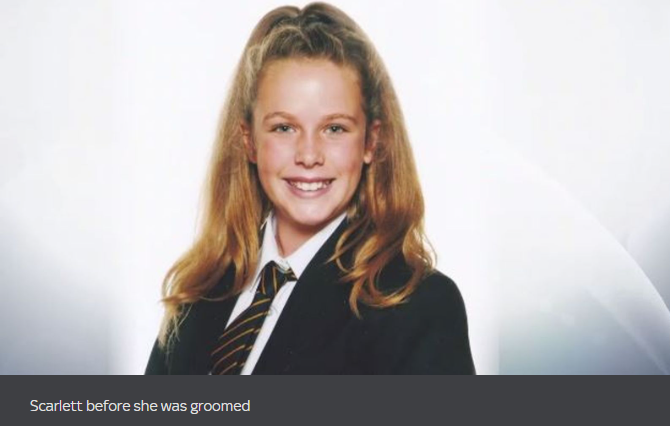
But her life changed after she was attacked by a gang at a bus station - they started bullying her and she decided it was better to become their friends. An older female member then started grooming her for rape gangs made up of Muslim men, her father told Sky News. Mr West said six men were involved in grooming her from the age of 14 but she was raped by more than 60 before the abuse finally stopped shortly before she turned 18.
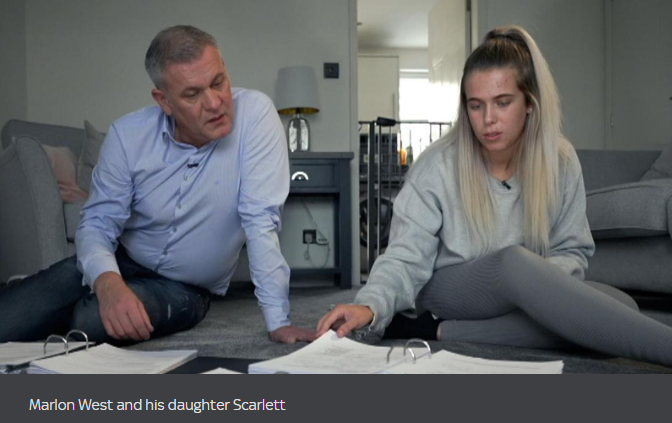
By then, she was too terrified to leave home. "Scarlett isn't a survivor and a lot of these other girls aren't survivors," he said. "The reason being is they're still living with the trauma every day." Mr West, an advanced nurse practitioner for mental health services at the NHS, said his daughter was thrown out of school aged 14 and would go missing for weeks at a time. On one occasion, he tracked her down to a property in Derbyshire, but when he eventually persuaded police to attend, he was told Scarlett was "safe" with the woman who groomed her and "her friends".
Mr West said he was "absolutely furious" when police and social services dismissed the abuse as "a lifestyle choice" and was so desperate he put Scarlett into care when she was 15. "I couldn't keep her safe," he said. "It's the hardest decision of my life." But within a week of her returning home, when she had to leave the care system after turning 16, she was going missing again. Mr West said the female groomer had stayed in contact with Scarlett and "was literally waiting for her" when she came home.
She was then trafficked all over the country, including Bradford, Birmingham and London. Mr West said he had to "scream" at police to track her down before they raided a property in Rochdale where she was found along with heroin and crack cocaine. Scarlett was arrested and released on bail, but wasn't charged because she was on a Home Office database as being at risk of trafficking, he said. "Even though that [arrest] was inappropriate, that stopped it because she was terrified of going out of the house, which she still is now to a certain extent."
Mr West believes the abuse also came to an end because she was getting older and her abusers were no longer interested. "This is not just about child sexual exploitation but also criminal exploitation - she was doing county lines, she was picking up firearms for them," he said. Mr West said any child can be at risk of grooming. "They're stereotyping a lot of these survivors, that they're coming from broken homes, or they're in care," he said. "A groomer doesn't stand outside a school gate and think, 'I'm not grooming her because her dad's a doctor or her dad's a GP' - they don't care.
Once they target, that's it." Mr West was speaking as a report by police watchdogs revealed Greater Manchester Police has live grooming investigations involving 714 victims and survivors. The force said it has 1,099 lines of enquiry relating to potential suspects but only 269 who are confirmed. "I think there's more - a lot of survivors haven't come forward.
One, because they're probably still being groomed and secondly because they're terrified of GMP and how they've been treated in the past," he said. "It's higher than it's ever been. Services such as police and social services are terrified of political correctness. "The groomers know they can get away with it because there aren't many arrests and so it's increased." GMP Chief Constable Sir Stephen Watson promised to go after child rapists and paedophiles "relentlessly" after the publication of the report, which was largely positive about the force's turnaround in tackling the gangs.
But Mr West believes they are "still failing", although he welcomed the investigation opened into his daughter's case. He said he is "hopeful" the national inquiry into grooming gangs by the government last month "will expose a lot of the cover-ups and give accountability" but is worried about the involvement of services such as councils and police forces because of a lack of trust. A GMP spokesperson said:
"We have met with Scarlett and her father and we're conducting an extensive investigation into their allegations. "While we understand the impact of their experiences cannot be undone, we aim to ensure that the experience of the GMP of today would be much improved from that of previous years." A Tameside Council spokesperson previously said they were legally unable to comment on Scarlett's case.
Related Topics:
Baroness Casey Demands Truth and Justice for Grooming Victims
Casey Report Exposes Asylum Seekers’ Involvement in Grooming Gang Investigations
Labour Under Fire as Grooming Survivors Condemn Minister’s ‘Dog Whistle’ Remark
Labour Revises Plans on Grooming Gang Investigations Amid Backlash
The Controversy Over Islamophobia and Grooming Gang Investigations
Starmer Faces Rising Pressure as Labour MPs Demand Grooming Gangs Inquiry
The Silenced Truth: How Political Correctness Delayed Justice for Grooming Victims
Grooming Networks Persist in Oxford, Warns Former Investigator
Britons Overwhelmingly Support a New Grooming Gang Inquiry
Politicians Must Address the Ethnicity of Grooming Gangs, Says Whistleblower’s Aide
David Lammy Criticizes Sajid Javid for Remarks on Ethnicity of Grooming Gangs
Rift Between Keir Starmer and Yvette Cooper Over Grooming Gangs Crisis DeepensLabour Faces 'conspiracy of silence' on Grooming Gangs Inquiry
UK Ex-MP Claims Grooming Gang Ethnicity Was Suppressed to Protect Votes
Kemi Badenoch Urges National Inquiry into UK Grooming Scandal
 Adapted by ASEAN Now from Sky News 2025-07-05
Adapted by ASEAN Now from Sky News 2025-07-05
-
 7
7
-
-
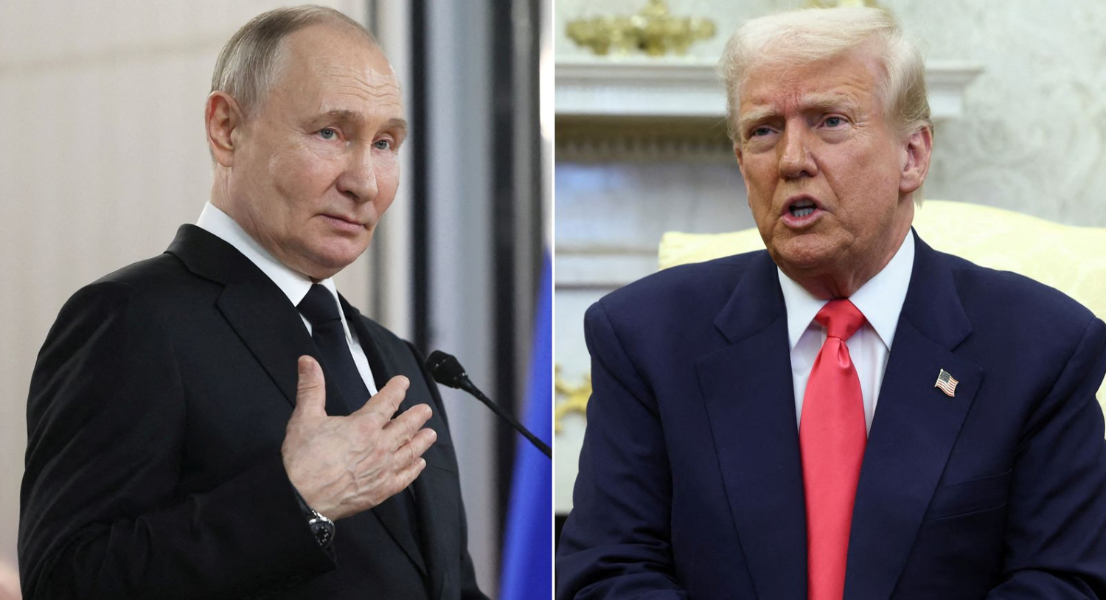
Putin Reaffirms Ukraine War Objectives in Lengthy Call with Trump
Russian President Vladimir Putin has told U.S. President Donald Trump that Moscow will not abandon its objectives in Ukraine, despite renewed appeals from Washington to bring the war to an end. The two leaders spoke by phone for nearly an hour, according to the Kremlin, marking their sixth publicly acknowledged conversation since Trump's return to the White House in January.
Trump: "I didn't make any progress with Putin today at all."
— Margarita Simonyan (@M_Simonyan) July 3, 2025
As we all suspected most tangible outcome of today's phone call was idea of exchanging films promoting traditional values.
Expect Trump will be sitting down for a private showing of Andrei Rublev later tonight. pic.twitter.com/c32CaZ59vOKremlin aide Yuri Ushakov revealed to reporters that during the call, Mr. Trump “again raised the issue of an early end to military action” in Ukraine. In response, Putin made clear that “Russia will not back down” from its goals. Ushakov said the Russian president emphasized that these aims include “the elimination of the well-known root causes that led to the current state of affairs.”
The term “root causes” has long been used by Moscow as shorthand for its insistence that Ukraine’s movement toward NATO and the West posed an existential threat. Russian officials argue this justified the 2022 invasion. However, Ukraine and many of its European allies reject this as a pretext, accusing Russia of waging a neo-imperialist war to redraw Europe’s borders by force. Despite this, Mr. Trump has previously expressed understanding for aspects of Russia’s position, occasionally drawing criticism from NATO partners.
Despite reaffirming his hardline stance, Mr. Putin also indicated that Russia remains open to negotiations, Ushakov said. He conveyed to Trump that any prospective peace deal would have to include two key concessions from Ukraine: the abandonment of its NATO membership ambitions and formal recognition of the territories Russia has occupied since the war began.
Putin reportedly updated Trump on the latest agreements reached between Russia and Ukraine, including the recent prisoner and body exchanges that took place last month. While seen as minor confidence-building measures, these exchanges have not yet paved the way for broader political reconciliation.
No timeline was discussed during the call regarding the anticipated third round of peace talks in Istanbul. Furthermore, there was no mention of the Biden administration’s recent decision to suspend deliveries of key weapons systems to Ukraine, including advanced air defense missiles and precision-guided artillery rounds. Two sources familiar with that situation say the U.S. military is reassessing its own stockpile levels amid growing concerns about readiness.
According to Russian state news agency Tass, Putin also used the occasion to congratulate Trump on the American national holiday and went further by asserting that Russia contributed to the formation of the United States. Kremlin aide Yury Ushakov recounted the exchange, stating, “It was noted from our side that Russia played an important role in the formation of American statehood including during the War of Independence 250 years ago, and then during the Civil War, which ended 160 years ago.”
Speaking later to reporters at Joint Base Andrews, President Trump offered a brief summary of the conversation. “I didn’t make any progress with [Putin] today,” he said, offering a blunt assessment of his latest diplomatic overture.
The call comes at a tense moment in the nearly three-year-long war. With Ukraine continuing to press for more Western support and Russia showing no sign of withdrawing its forces, the prospects for a negotiated peace remain uncertain. The White House has not issued a detailed readout of the call, though a spokesperson confirmed it took place and characterized it as “a candid exchange.”
 Adapted by ASEAN Now from Sky News 2025-07-05
Adapted by ASEAN Now from Sky News 2025-07-05
-
 1
1
-
 1
1
-
-
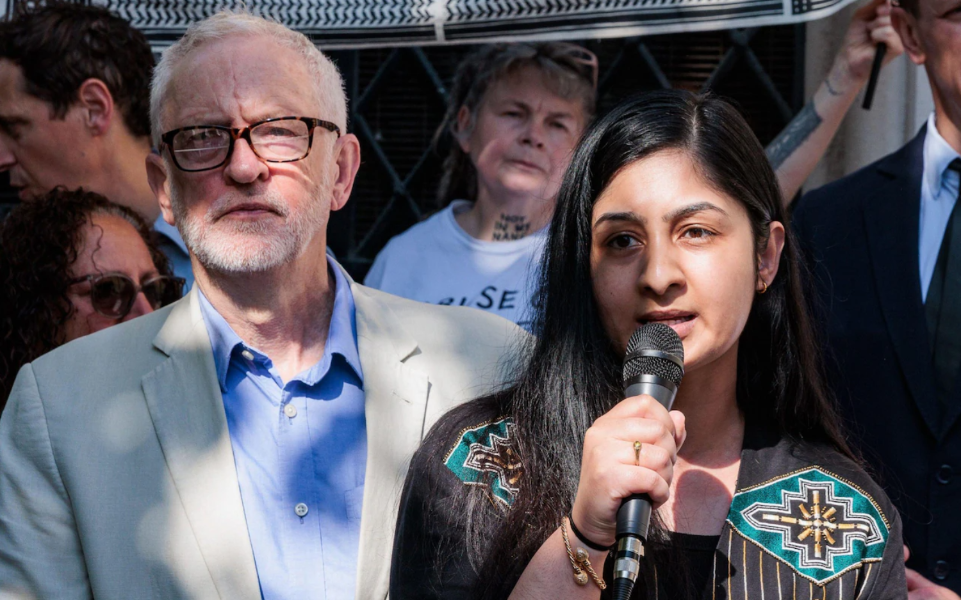
Corbyn and Sultana Launch New Hard-Left Party to Challenge Labour
A fresh divide on the British Left has emerged with the announcement that Jeremy Corbyn and Zarah Sultana will co-lead a new hard-Left political party, directly challenging Sir Keir Starmer’s Labour across the country. The new group, still unnamed, marks a formal political rupture between Labour’s current leadership and the faction once at its heart.

Ms Sultana, who resigned from Labour on Thursday, revealed the plan in a message posted on X, formerly Twitter. “Jeremy and I will co-lead the founding of a new party, with other independent MPs, campaigners and activists across the country,” she wrote. She went on to highlight that her departure from Labour came after 14 years of membership.

The announcement follows years of tension between Labour’s Left and Starmer’s centrist leadership, and comes just five years after Mr Corbyn was expelled from the party. The new political movement aims to unite disaffected Labour supporters, independent MPs, and grassroots activists behind a revived socialist agenda.
Ms Sultana framed the upcoming general election as a fundamental crossroads, declaring it a choice between “socialism or barbarism.” Her stance positions the new party as a principled alternative to Labour’s perceived compromises under Starmer’s leadership.
The move also comes in the wake of a major policy backlash within Labour itself. Last week, Sir Keir faced a rebellion from 49 of his own MPs over proposed welfare reforms that would have reduced access to disability benefits. Facing pressure, the Labour leader was forced into a public U-turn. Ms Sultana indicated that such welfare policies were a core reason for her departure and a key issue for the new party’s campaign.
“A year ago I was suspended by the Labour Party for voting to abolish the two-child benefit cap and lift 400,000 children out of poverty. I’d do it again,” she wrote. “I voted against scrapping winter fuel payments for pensioners. I’d do it again. Now the Government wants to make disabled people suffer – they just can’t decide how much.”
Her comments suggest the new party will make benefit protections, anti-poverty measures, and expanded social care central to its platform. The formation of this new group is expected to further complicate Labour’s electoral path, particularly among younger and more left-leaning voters who once backed Corbyn in record numbers.
Although the party’s name and official platform have yet to be unveiled, the broader implications are already clear. A recent poll suggests that a new Left-wing force could capture up to 10 percent of the national vote—posing a serious threat to Labour’s chances of securing a clear majority. According to the same polling, if such a split occurs, Labour could find itself tied with the Conservatives at just 20 percent support each.
The dynamic echoes the split on the political Right, where Reform UK has drawn voters away from the Conservatives and reshaped electoral calculations. Corbyn and Sultana now appear poised to trigger a similar disruption on the Left, capitalising on discontent among Labour’s former base.
While Sir Keir Starmer has sought to reposition Labour closer to the political centre in a bid to win back power, the emergence of a new hard-Left alternative underscores the difficulty of uniting the party’s ideological wings—and the risks of leaving its traditional supporters behind.
 Adapted by ASEAN Now from The Telegraph 2025-07-05
Adapted by ASEAN Now from The Telegraph 2025-07-05
-
 1
1
-
 1
1
-
-

Labour’s NHS Appointment Claims Under Scrutiny as Growth Slows
The Labour government’s claims of a record-breaking performance in delivering NHS appointments are being challenged, as new data suggests the rate of increase has actually slowed since Sir Keir Starmer took office. Despite headlines boasting millions of additional appointments, closer examination reveals that the pace of progress is less impressive than portrayed.
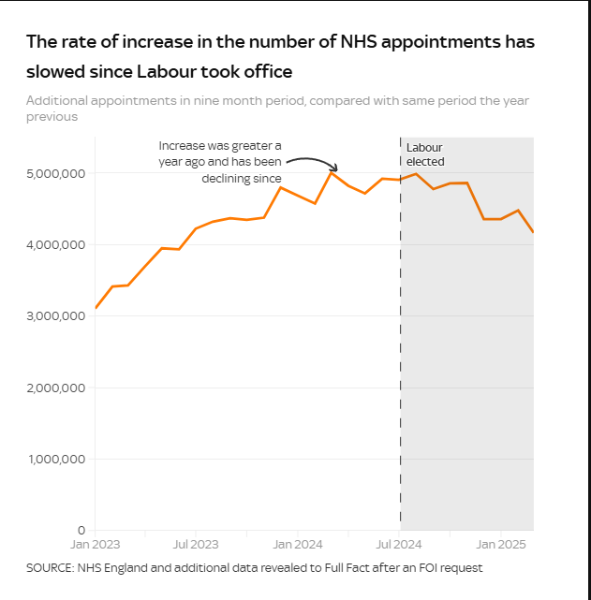
At a press conference on Thursday, the Prime Minister proudly announced that his government had surpassed its target, delivering four million extra NHS appointments within its first nine months. “At the last election a year ago, we promised two million extra appointments in the NHS in the first year of a Labour government,” Starmer said. “We have now delivered four million extra appointments and that's thanks to your hard work and that of your colleagues. Four million. That’s a record amount for a single year ever,” he told NHS staff.
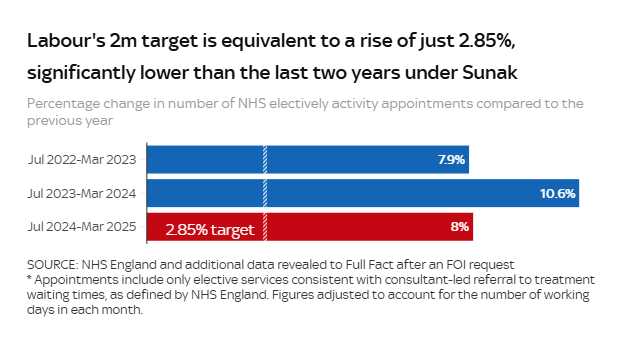
But Sky News and independent fact-checkers at Full Fact have found that these figures may not be as extraordinary as they sound. In fact, the 8.0% rise in appointments since Labour came to power falls short of the 10.6% increase achieved by Rishi Sunak’s Conservative government over the same period the year before. Sunak’s government saw five million additional appointments in that timeframe.
The government's original pledge to deliver two million extra appointments was, according to Full Fact, modest from the outset. “If [the government] achieved a rise of two million in its first year in office, it would be by far the smallest rise since the pandemic,” the organisation noted. While Labour has doubled that figure, experts point out that the increase still represents a relatively small percentage of the total.
To put it into perspective, two million extra appointments make up less than 3% of the nearly 70 million conducted in the year leading up to June 2024. And while the annual total now hovers around 75 million in England, that number naturally grows with rising demand and a growing population. The real issue, critics argue, is not whether the number of appointments is increasing, but whether that increase is sufficient to reduce the NHS’s substantial backlog and meet growing demand.
A key point of contention has been Starmer’s claim that the four million figure represents a record. When questioned, the Department of Health and Social Care clarified that what the Prime Minister meant was that the overall number of appointments reached a record level, not that the four million additional appointments were a record by themselves—a crucial distinction.
Full Fact journalist Leo Benedictus commented: “While the total number of appointments may be at a record high, the actual rise in these appointments under Labour is significantly lower than it was the previous year.” He added that historical data, obtained by Full Fact through the Freedom of Information Act, indicates that appointment numbers have been steadily rising for years and that Labour’s increase is not exceptional.
“It still isn’t entirely clear exactly which sorts of activity the Government is claiming is at record level, because for these appointments alone that just isn’t true,” Benedictus said. “No voter thinks improving the NHS is simple or easy, but in a time of historically low trust in politics, it is even more important that the Government is transparent and honest about their data and its significance.”
In light of these findings, critics argue that while Labour’s achievements in boosting appointment numbers may be notable, they are far from unprecedented—and claims of record-breaking progress may ultimately do more to undermine public trust than to bolster it.
 Adapted by ASEAN Now from Sky News 2025-07-05
Adapted by ASEAN Now from Sky News 2025-07-05
-
- Popular Post
- Popular Post
@BLMFem your trolling response was removed.
17. ASEAN NOW news team collects news articles from various recognised and reputable news sources. The articles may be consolidated from different sources and rewritten with AI assistance These news items are shared in our forums for members to stay informed and engaged. Our dedicated news team puts in the effort to deliver quality content, and we ask for your respect in return. Any disrespectful comments about our news articles or the content itself, such as calling it "clickbait" or “slow news day”, and criticising grammatical errors, will not be tolerated and appropriate action will be taken. Please note that republished articles may contain errors or opinions that do not reflect the views of ASEAN NOW.
If you'd like to help us, and you see an error with an article, then please use the report function so that we can attend to it promptly.
-
 1
1
-
 1
1
-
 1
1
-
@bannork your post on an AP report has been removed. It was already posted by another member on the same page, since then you've double posted twice. Please stop it and read the topic before posting duplicate articles.
Another post that was a general article on the number of deaths in Gaza in the last few days has also been removed. This topic is:
US Pushes Forward with Private Aid Plan for Gaza Amid UN Opposition
-

UK Government Demands Accountability from BBC over Bob Vylan Glastonbury Broadcast
The UK government has intensified pressure on the BBC following its decision to live stream a Glastonbury performance by punk duo Bob Vylan, during which the artists led a chant of "death, death to the IDF [Israel Defence Forces]." Culture Secretary Lisa Nandy told the House of Commons on Thursday that she is “not satisfied” with the BBC’s response and said she “would expect there to be accountability at the highest levels” within the corporation.
The BBC has acknowledged the incident, admitting that the comments made during the live set were “utterly unacceptable” and stating it should have cut the broadcast sooner. The performance remained available on iPlayer for over four hours before being removed, drawing sharp criticism from across the political and public spectrum, including from Chief Rabbi Sir Ephraim Mirvis and broadcast regulator Ofcom, which noted the broadcaster had “questions to answer.”
In an internal email to the BBC’s Jewish staff network on Tuesday, Director General Tim Davie condemned the incident unequivocally. “I was, and remain, appalled by Bob Vylan's deeply offensive and totally unacceptable behaviour during his Glastonbury set,” he wrote. “That performance had no place on the BBC, and there is absolutely no place for antisemitism at the BBC.”
Bob Vylan have since faced serious consequences. Multiple upcoming performances have been cancelled, including shows in Manchester, France, and Germany. Avon and Somerset Police have opened a criminal investigation into their Glastonbury comments, while London’s Metropolitan Police confirmed that the band is also being investigated for remarks allegedly made during a performance at Alexandra Palace in May.
New footage shows that Bob Vylan didn’t just chant “Death to the IDF,” he said “Death to every single IDF soldier out there.”
BREAKING: New footage shows that Bob Vylan didn’t just chant “Death to the IDF,” he said “Death to every single IDF soldier out there.”
— Eyal Yakoby (@EYakoby) July 2, 2025
This is direct incitement to violence. And includes every single Jewish, Druze, Christian, and Muslim IDF soldier.
pic.twitter.com/sYCOV32TWOThis is direct incitement to violence. And includes every single Jewish, Druze, Christian, and Muslim IDF soldier.
The culture secretary’s criticism of the BBC did not end with this particular incident. Earlier this week, she referenced what she described as a pattern of “recent editorial failures” at the public broadcaster. Among them is a controversy involving the documentary Gaza: How To Survive A Warzone, which was pulled from iPlayer in February after revelations that it was narrated by the child of a Hamas minister.
“When you have one editorial failure, it's something that must be gripped,” Nandy said on Monday. “When you have several, it becomes a problem of leadership.”
The BBC is currently conducting a formal review of the Gaza documentary episode and is expected to publish its findings in the near future. Meanwhile, pressure continues to mount on the corporation’s top executives as both government officials and the public demand accountability and clearer editorial standards.
Related Topics:
BBC Under Fire Again Over Gaza Analyst's Hamas Connections
BBC Contributor in Gaza Sparks Outrage ‘We’ll burn Jews like Hitler did’
BBC Doc Features Son Of Hamas Leader but Fails to Disclose to Viewers
BBC Faces Backlash Over Use of Term ‘Revert’ in Islam Coverage
BBC Faces More Serious Accusations of Bias in Gaza Hostage Release Coverage
"Controversy Surrounds BBC Arabic's Coverage of Israel-Gaza Conflict"
BBC uses account of journalist working for Iran-backed news agency in Gaza deaths article
MPs demand inquiry Gaza doctors at centre of harrowing BBC report are Hamas supporters
BBC criticized For failing To Disclose Affiliations of Palestinian Journalists Hamas Ties
BBC Faces Backlash Over Terminology in Hamas Coverage
BBC Chairman Calls For a Thorough Review of Israel-Hamas War Bias
BBC Accused of Bias in Israel-Hamas Coverage: Over 1,500 Breaches of Guidelines
Jeremy Bowen Defends BBC Amid Allegations of Bias Over Israel-Hamas Coverage
New Report from former BBC Director Criticizes Coverage of Israel-Hamas Conflict
Whistleblower Alleges Normalized Anti-Semitism at the BBC
 Adapted by ASEAN Now from BBC 2025-07-04
Adapted by ASEAN Now from BBC 2025-07-04
-
 1
1
-
 1
1
-









Is Peace Possible
in The War in Israel
Posted
A couple of posts making inflammatory false claims already removed. If you want to make specific claims on the topic being discussed then ensure you provide a credible link as per forum rules:
"Latest developments and discussion of events in the Israel-Hamas War. Any alleged factual claims must be supported by a valid link to an approved credible source."